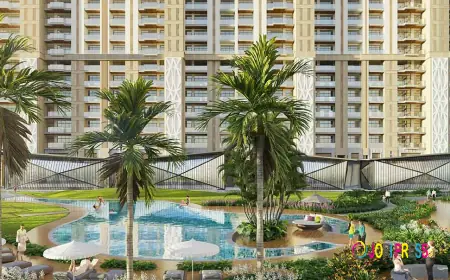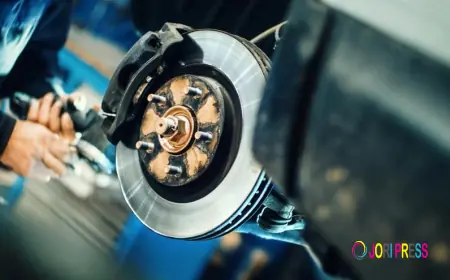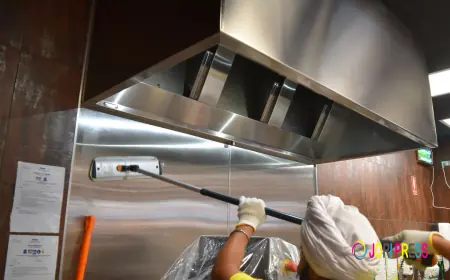What Should You Not Use on Vinyl Floors?
Learn what cleaning products and tools to avoid on vinyl floors. Discover safe care tips, expert advice, and trusted services for long-lasting floors.

Vinyl floors are one of the most popular flooring choices today because they are durable, stylish, and easier to maintain compared to many other options. Whether you have luxury vinyl planks (LVP) or vinyl composite tiles (VCT), keeping them in good condition depends on how you clean and care for them. While vinyl flooring is tough, using the wrong products or cleaning methods can shorten its lifespan and damage its finish.
To help you protect your investment, this article highlights what you should not use on vinyl floors, explains why certain cleaners and tools can be harmful, and shares safe alternatives for keeping your floors looking their best.
Why Proper Vinyl Floor Care Matters
Vinyl flooring may be resistant to stains and scratches, but it is not completely invincible. Harsh chemicals, abrasive cleaning tools, and excess water can all cause problems if used regularly. Over time, damage may appear in the form of dullness, discoloration, cracks, or peeling edges.
This is why knowing the right cleaning practices is just as important as knowing what to avoid. Many people assume that stronger cleaners lead to a deeper clean, but with vinyl, gentler methods usually deliver better long-term results.
If you live in Georgia and deal with heavy foot traffic or need professional care, services such as VINYL Composite Tiles Cleaning in Lizella GA can be an excellent way to ensure your flooring remains safe and spotless.
Cleaning Products to Avoid on Vinyl Floors
When it comes to maintaining vinyl, some cleaning products can do more harm than good. Here are the most common ones to stay away from:
1. Abrasive Cleaners or Powders
Products like scouring powders, rough scrubbing creams, or even harsh multi-surface sprays can scratch vinyl surfaces. These tiny scratches may not be visible right away but will accumulate over time, causing the surface to appear dull and more difficult to clean.
2. Ammonia-Based Solutions
Ammonia is often used for heavy-duty cleaning, but it is far too harsh for vinyl. It can break down the protective coating and cause the material to crack or become brittle. Regular exposure to ammonia-based cleaners will also strip away the glossy finish.
3. Bleach and Other Harsh Chemicals
While bleach is effective for killing germs, it is not suitable for vinyl floors. It can leave stains, discolor patches, and weaken the adhesive holding the flooring in place. Acidic cleaners like vinegar, when used in strong concentrations, can also damage the surface.
4. Wax or Oil-Based Polishes
Vinyl flooring already comes with a protective coating that gives it shine. Using wax or oil-based polishes may cause buildup, making the floor slippery and attracting more dirt. Instead of adding shine, these products can create a sticky mess.
5. Steam Cleaners
Heat and moisture are two things that vinyl flooring does not handle well. Steam cleaners push hot water deep into the seams, which can loosen adhesives and cause warping or curling. Even though steam is marketed as a chemical-free option, it is not safe for vinyl.
Tools You Should Never Use on Vinyl Floors
It is not just about cleaning solutions—tools matter too. Here’s what you should avoid:
-
Steel wool or scrubbing brushes: These can cause scratches.
-
Vacuum cleaners without a hard-floor setting: Rotating brushes or beater bars can scuff vinyl surfaces.
-
Soaking wet mops: Excessive water can seep into seams and edges, leading to warping or mold growth.
Instead, opt for a soft microfiber mop, gentle cleaning pads, and a vacuum designed for hard floors.
Safe Ways to Clean Vinyl Floors
To keep your vinyl floors in excellent shape, use mild cleaning methods:
-
Regular sweeping or vacuuming: Prevent dirt from scratching the surface.
-
Damp mopping with warm water: A slightly damp microfiber mop is usually enough for daily cleaning.
-
Mild pH-neutral floor cleaners: These are designed to clean without damaging vinyl.
-
Spot cleaning spills quickly: This prevents stains and sticky spots.
By using safe cleaning practices, your vinyl floors can maintain their shine and durability for many years.
Why Professional Cleaning Helps
Even with regular care, dirt and grime can build up in seams or textured surfaces of vinyl flooring. This is where professional cleaning becomes valuable. Specialists use safe, floor-friendly products and equipment designed for vinyl surfaces.
Companies like Quality Care Carpet Cleaning And Floor Services are often recommended by homeowners because they focus on methods that extend the life of vinyl floors rather than risking damage with harsh chemicals. Their knowledge of different flooring types allows them to tailor the right approach for each customer’s needs.
Long-Term Care Tips
In addition to avoiding harmful cleaners and tools, here are a few more ways to protect your vinyl floors:
-
Use rugs and mats at entryways to reduce dirt and grit.
-
Lift furniture instead of dragging it to avoid scratches.
-
Apply felt pads under heavy furniture legs.
-
Maintain proper humidity levels to prevent flooring from expanding or contracting.
Simple habits like these can make a big difference in how long your vinyl flooring looks new.
If you’re looking for a deeper solution, trusted services such as VINYL Composite Tiles Cleaning in Lizella GA can restore vinyl flooring without exposing it to unsafe methods. Their specialized care is particularly helpful for businesses, schools, and other high-traffic areas.
Conclusion
Vinyl floors are designed to be tough, but they still need gentle care. The biggest mistakes people make include using abrasive cleaners, harsh chemicals, waxes, steam, or rough tools. By avoiding these, you protect your flooring from scratches, dullness, and damage.
Instead, stick to mild cleaners, soft mops, and safe practices to keep your floors looking their best. And when routine cleaning is not enough, professional services can provide safe and effective solutions without risking damage to your investment.
With the right care, vinyl flooring will remain durable, attractive, and easy to maintain for years to come.
What's Your Reaction?
 Like
0
Like
0
 Dislike
0
Dislike
0
 Love
0
Love
0
 Funny
0
Funny
0
 Angry
0
Angry
0
 Sad
0
Sad
0
 Wow
0
Wow
0
















































